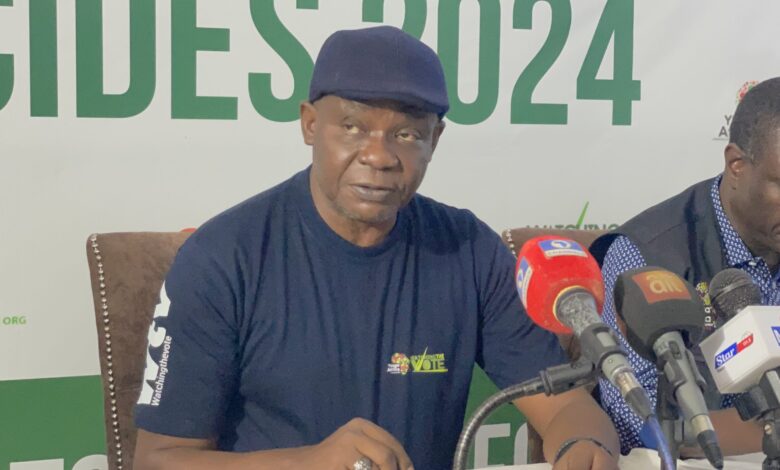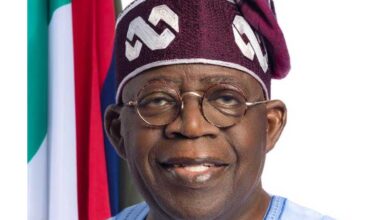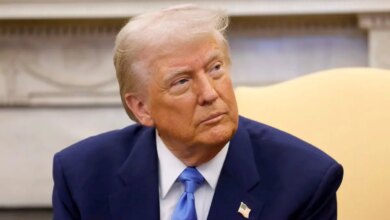Suspend 15% import tariff on petrol, diesel – Nwagwu to Nigerian govt

Public analyst Ezenwa Nwagwu, has urged the Nigerian government to suspend its recently approved 15 per cent import tariff on premium motor spirit and automotive gas oil.
Nwagwu made call, Monday, noting that by taxing imported fuel at this critical stage, the government risks creating artificial scarcity, causing inflation, and undermining deregulation, which was meant to open, not close, the market.
Recall that President Bola Ahmed Tinubu announced that he has given approval to a 15 per cent import duty tariff on refined petroleum products.
The development had sparked a fresh fuel and diesel price hike.
But in his reaction to the now controversial government directive, Nwagwu, who is the Executive Director of the Peering Advocacy and Advancement Centre in Africa, PAACA, said the policy threatens Nigeria’s economic stability and would worsen citizens’ suffering.
“We gather today(Monday) under the theme “Protect the People, Not the Monopoly” to raise our collective voice against the Federal Government’s plan to impose a 15 per cent import tariff on petrol (PMS) and diesel, a policy that threatens Nigeria’s economic stability and worsens the suffering of ordinary citizens.
“The government justifies this move by claiming it will ‘protect local refining capacity’ and ‘stabilise the downstream market.’” But in truth, this policy will eliminate competition, increase fuel prices, and concentrate monopoly control in the hands of a single private refinery — the Dangote Refinery.”
Nwagwu explained that the Dangote Refinery currently meets only about 40 per cent of national fuel demand, noting that restricting imports now will not stabilise supply but will create scarcity.
He noted that once competition disappears, prices are dictated rather than discovered, leaving Nigerians with no choice and no relief.
He said, “Imported petrol today lands at roughly N802 per litre, while the locally refined product from Dangote lands at N929.72 per litre. Adding a 15 per cent tariff will only make things worse, increasing pump prices by between N140 and N165 per litre and driving up the cost of transportation, food, and essential goods.”
He said further, “The government’s role is to ensure fairness and transparency, not to pick winners and losers. Nigerians are already enduring fuel subsidy removal, currency devaluation, inflation, and job losses. Adding a 15 per cent tariff at this time would only deepen the hardship and risk public unrest.
“It also contradicts the very spirit of deregulation, which was supposed to dismantle cartels, not recreate new ones under a different name.
“History has already taught us painful lessons. From cement to sugar to flour, once monopolies take root in Nigeria, prices rise permanently and alternatives vanish. Nigerians have been conditioned to view industrial magnates as “national saviours”, creating what can only be described as a dangerous illusion of benevolent monopoly. But patriotism cannot be built on exploitation. We cannot allow corporate dominance to be disguised as national pride while citizens pay the price for it every day at the fuel pump.
“We therefore demand that the Federal Government immediately suspend the proposed 15 per cent import tariff on petrol and diesel until domestic refining capacity meets at least 80 per cent of national demand. The government should also publicly disclose all refinery supply agreements with marketers to ensure fair access and direct the Nigerian Midstream and Downstream Petroleum Regulatory Authority (NMDPRA) to publish monthly data on refinery output, import volumes, and landed costs to promote transparency.
“In the medium term, a downstream competition framework should be established within the Petroleum Industry Act (PIA) to prevent monopolistic pricing, alongside an Energy Market Monitoring Unit under the Federal Competition and Consumer Protection Commission (FCCPC) to track market concentration and anti-competitive behaviour. In the long run, the government must invest in logistics and port efficiency to reduce transport and import costs for all market participants, not just one, while promoting citizen oversight and open data in petroleum pricing and distribution.”
Earlier, the federal government had explained that the policy is to protect local industries.





